News history
News from CBD
CBD welcomes PhD candidate Kate Matthews (07.06.2016)
CBD are happy to welcome PhD student Kate Matthews, which will spend four years with us. Kate, which is from the UK, did her MSc at Univ. Zurich, where she applied a spatial population model to investigate the effects of forestry and climate change on Siberian jay. Her PhD project at CBD will be in the interface of Research areas 1 (population dynamics) and 3 (community dynamics), applying age-structured integrated population models to study dynamics of Arctic terrestrial vertebrates.
PhD Candidate visiting CBD (24.05.2016)
 Rafaela Naves is visiting CBD for 4 months (May-September) to develop parts of her thesis with supervision from Vidar Grøtan at CBD. Rafaela is a PhD candidate at the Department of Forest Sciences, University of São Paulo, Brazil. In her PhD project she wants to develop a better understanding of the effect of forest management for the purpose of timber supply in the tropical forest. During her stay at CBD her work is going to focus on studying how alternative logging practices could influence the tree community organization as well as the species abundance distribution. Rafaela’s broader research interests are forest biometrics, statistical modeling and tropical forest ecology.
Rafaela Naves is visiting CBD for 4 months (May-September) to develop parts of her thesis with supervision from Vidar Grøtan at CBD. Rafaela is a PhD candidate at the Department of Forest Sciences, University of São Paulo, Brazil. In her PhD project she wants to develop a better understanding of the effect of forest management for the purpose of timber supply in the tropical forest. During her stay at CBD her work is going to focus on studying how alternative logging practices could influence the tree community organization as well as the species abundance distribution. Rafaela’s broader research interests are forest biometrics, statistical modeling and tropical forest ecology.
New postdoc at CBD
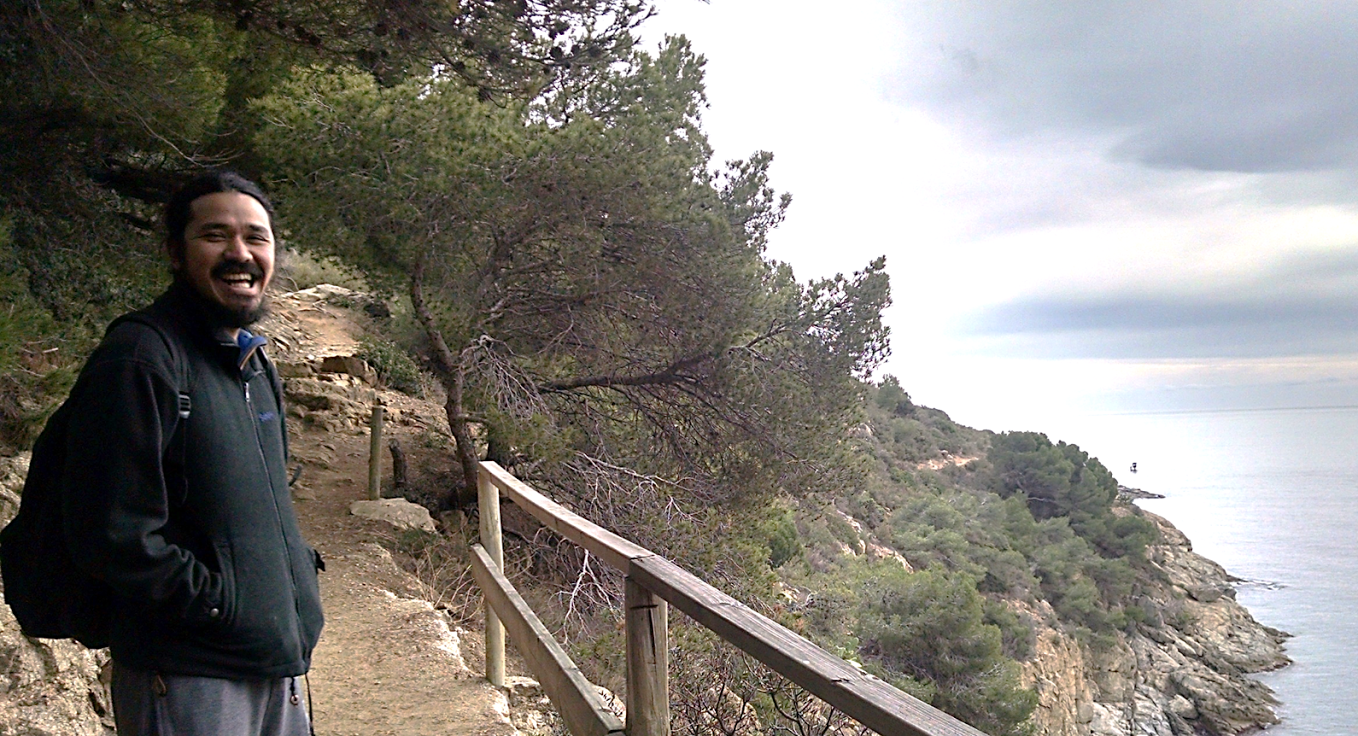 Dr. Yimen Araya-Ajoy has joined CBD as a postdoc of the behaviour and evolution section in the department of biology. Yimen is an evolutionary ecologist with a background in behavioral ecology and quantitative genetics. He has worked with the social structure and acoustic communication of Ocellated Antbirds in Costa Rica and the behavior and mating strategies of Great Tits in Germany. At the NTNU, Yimen will be collaborating with Prof. Jon Wright on the project “'Life History Evolution in a Changing World: The Adaptive Alignment of Pace-of-Life Syndromes'” to find out how environmental variation shapes the life histories of House Sparrows.
Dr. Yimen Araya-Ajoy has joined CBD as a postdoc of the behaviour and evolution section in the department of biology. Yimen is an evolutionary ecologist with a background in behavioral ecology and quantitative genetics. He has worked with the social structure and acoustic communication of Ocellated Antbirds in Costa Rica and the behavior and mating strategies of Great Tits in Germany. At the NTNU, Yimen will be collaborating with Prof. Jon Wright on the project “'Life History Evolution in a Changing World: The Adaptive Alignment of Pace-of-Life Syndromes'” to find out how environmental variation shapes the life histories of House Sparrows.
New Ph.D Student
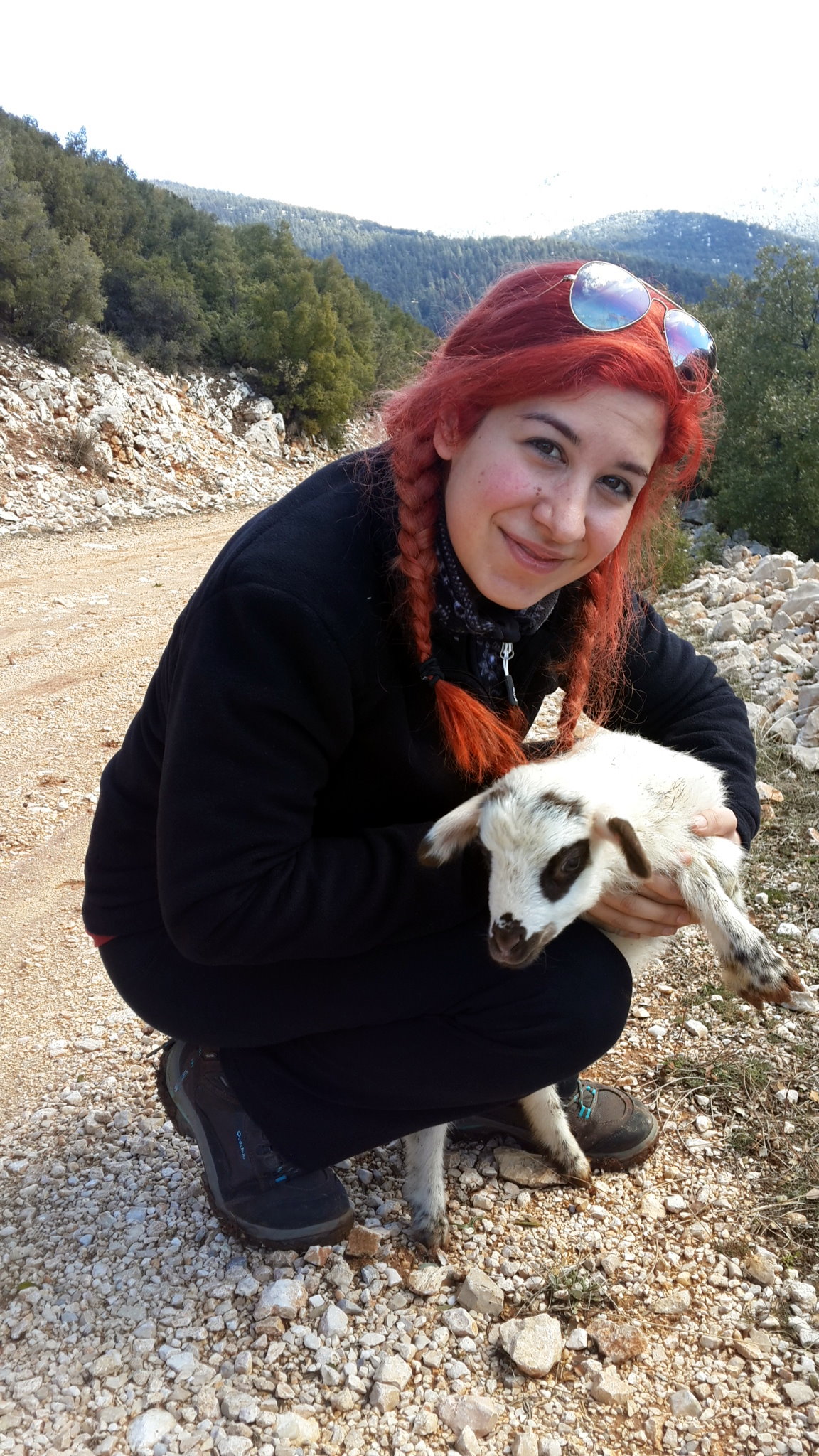 Dilan Saatoğlu has joined CBD as a Ph.D student and will work on a project which aims to understand ecological and evolutionary dynamics in time and space in natural populations supervised by Assoc. Prof. Dr. Henrik Jensen. In 2015 Dilan completed her MSc in population genetics and defended her master thesis entitled "Genetic Diversity of Gazelles (Gazella marica and Gazella gazella) in Southeast Turkey: with A Special Emphasis on Ongoing Conservation Studies of Gazella marica in Turkey". Her MSc-project was done in collaboration with Ministry of Forestry of Turkey and The Scientific and Technological Research Council of Turkey (Tübitak) in Middle East Technical University.
Dilan Saatoğlu has joined CBD as a Ph.D student and will work on a project which aims to understand ecological and evolutionary dynamics in time and space in natural populations supervised by Assoc. Prof. Dr. Henrik Jensen. In 2015 Dilan completed her MSc in population genetics and defended her master thesis entitled "Genetic Diversity of Gazelles (Gazella marica and Gazella gazella) in Southeast Turkey: with A Special Emphasis on Ongoing Conservation Studies of Gazella marica in Turkey". Her MSc-project was done in collaboration with Ministry of Forestry of Turkey and The Scientific and Technological Research Council of Turkey (Tübitak) in Middle East Technical University.
Postdoc Joost Raeyermaekers
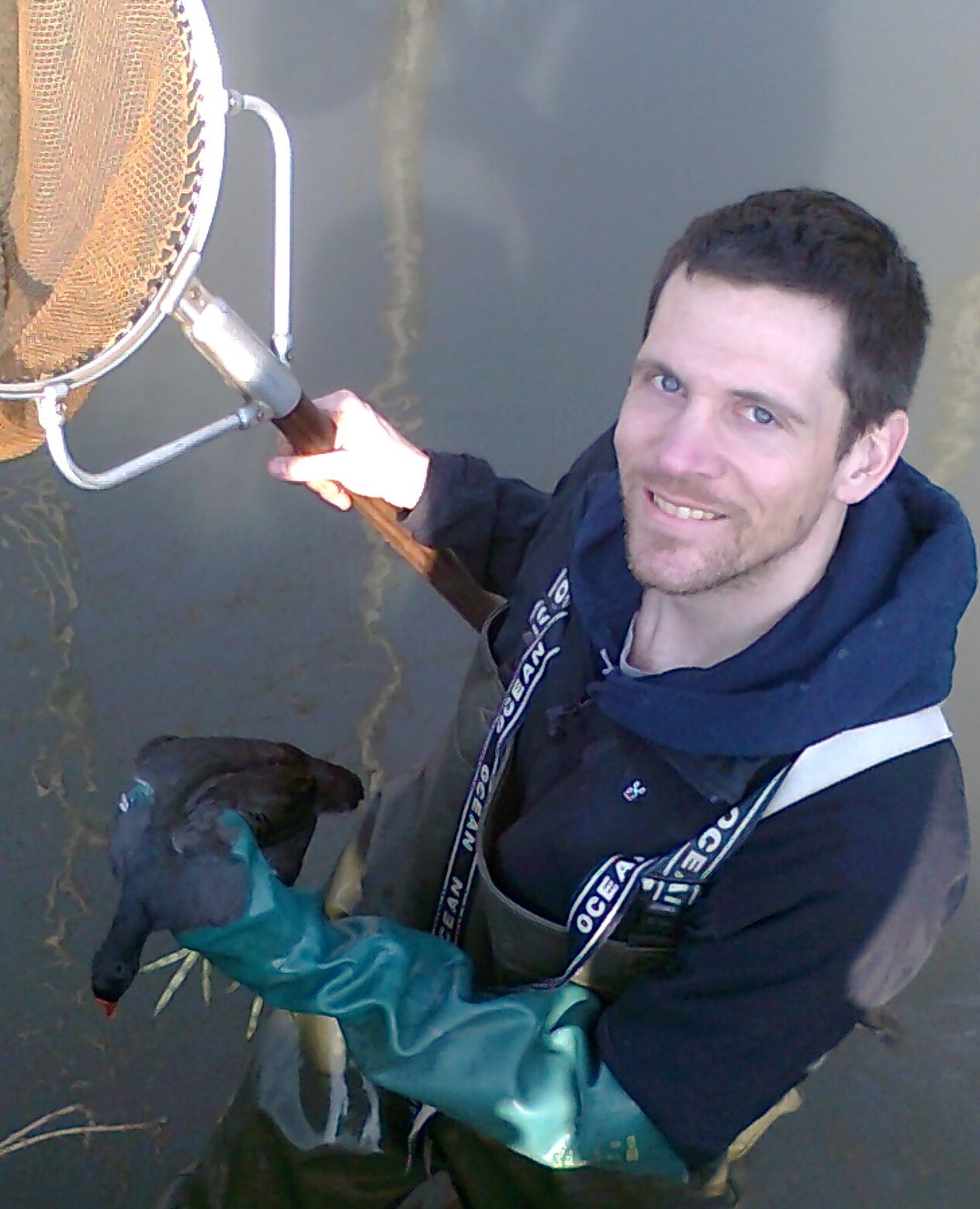 Dr. Joost Raeymaekers has joined CBD as a postdoc of the Freshwater Ecology group. Joost is an evolutionary ecologist with a background in population genetics, adaptation and ecological speciation, eco-evolutionary dynamics, and host-parasite interactions in stickleback fishes, East-African cichlids, Darwin’s finches and water fleas. At NTNU Joost will be collaborating with Prof. Sigurd Einum on the project “Eco-evolutionary dynamics of thermal reaction norms” to find out how genetic variation and temperature influence the population dynamics of water fleas.
Dr. Joost Raeymaekers has joined CBD as a postdoc of the Freshwater Ecology group. Joost is an evolutionary ecologist with a background in population genetics, adaptation and ecological speciation, eco-evolutionary dynamics, and host-parasite interactions in stickleback fishes, East-African cichlids, Darwin’s finches and water fleas. At NTNU Joost will be collaborating with Prof. Sigurd Einum on the project “Eco-evolutionary dynamics of thermal reaction norms” to find out how genetic variation and temperature influence the population dynamics of water fleas.
New project
The steering board of NORDFORSK has decided to fund the project " Warming up for warming Arctic – adaptation and management of Rangifer in Changing Arctic". CBD is looking forward to be one of the Nordic research institutions involved in developing strategies for a sustainable management of semi-domestic reindeer in a new climate.
Postdoctoral position in evolutionary genomics
A two-year postdoctoral position in evolutionary genomics funded by a grant from the Norwegian Research Council to Assistant Professor Arild Husby is available at the Centre for Biodiversity Dynamics (CBD), Department of Biology, NTNU, Norway. Read more about the position here >>
PhD position available
"Seeking a MSc-candidate who is highly motivated for a PhD study (4 years) on the effects of parasites on a wild host passerine, the house sparrow." Read more here >>
PhD position in Quantitative Ecology available (13.11.2015)
The PhD candidate will work on quantitatively oriented research questions in ecology, often involving estimating and predicting how different environmental drivers or various kinds of human activity affect population dynamics and/or community dynamics. A full description of the position is available here >>
Erik Blystad Solbu - Defence of thesis 12 November 2015 (6.11.2015)
Erik Blystad Solbu has submitted his thesis entitled: «Modelling and statistical analysis of demographic and environmental changes in populations and communities»
in partial fulfillment of the requirements for the degree of PhD in Mathematical Sciences at the Department of Mathematical Sciences, NTNU. More information here>>
WorkShop in Lund (6.11.2015)
In connection with the Evolution in Sweden meeting (Lund 13-14th of January 2016, http://www.evolutioninsweden.lu.se/) we are organizing a one-day workshop for PhD students on Friday 15th of January at SLU Alnarp; “How we can benefit from evolutionary biology in research related to management of natural resources.” (1.5 hp).
Talks by invited speakers will be combined with group discussions about how we can benefit from the use of evolutionary biology in research related to management of natural resources. We will focus on the particular subject areas “Applying insights from fundamental research on wild plant-natural enemy interactions to plant protection” and “Domestication and effects on useful non-target traits”, but are also welcoming new ideas from all participants. PhD students will present questions/ ideas related to their own research fields.
Invited speakers:
Anna-Liisa Laine, University of Helsinki, Finland
Ayco Tack, University of Stockholm, Sweden
Rieta Gols, Wageningen University, The Netherlands
Click here or more information:
Register no later than 30st of November 2015 by sending an email to: asa.lankinen@slu.se
CBD welcomes PhD student Thomas Haaland (03.11.2015)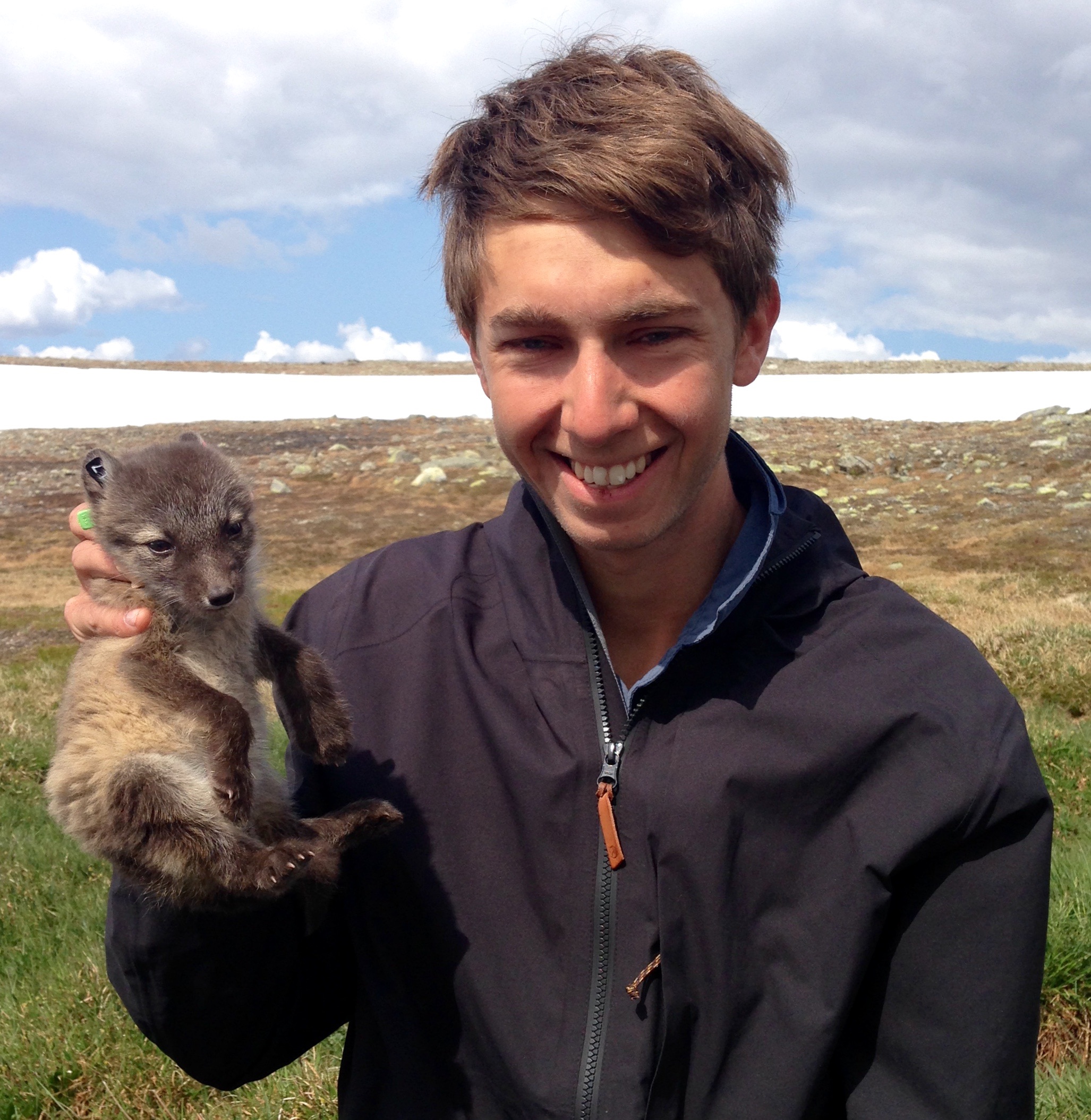
Thomas Haaland has joined CBD as a Ph.D student on dr. Irja Ratikainen’s new project “Evolutionary responses to variable and unpredictable environments: Conditions, interactions and consequences”. Thomas completed his MSc in Biology with Irja and Prof. Jonathan Wright in August, entitled “A general stochastic dynamic model of the differential allocation hypothesis”, and will continue working on stochastic dynamic models as well as individual-based simulation models for his Ph.D. He will be looking at well known adaptations to variability within individual lifetimes such as insurance, asset-protection and variance-sensitivity, and how these change when maximizing fitness over evolutionary time if environmental conditions vary across generations.
PhD position in Eco-Evolutionary Genomics availible (10.9.2015)
The goal of this PhD project is to improve our understanding of ecological and evolutionary dynamics in time and space in natural populations. Read more about it here >>
CBD at the Arctic Ungulate Conference (7.9.2015)
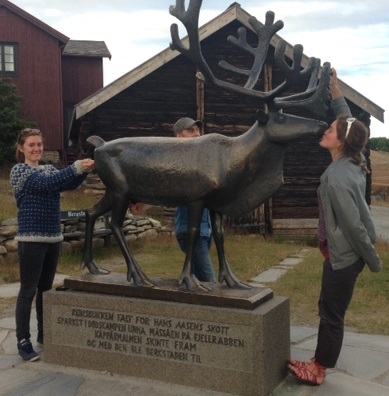 CBD was well represented at the 17th Arctic Ungulate Conference in Røros, Norway, 17-21 August. The subject for the conference was "The past, the present, and the future". CBD contributed substantially through several talks and posters, which included presentations of work on Svalbard reindeer by Larissa Beumer, Bart Peeters and Mathilde Le Moullec.
CBD was well represented at the 17th Arctic Ungulate Conference in Røros, Norway, 17-21 August. The subject for the conference was "The past, the present, and the future". CBD contributed substantially through several talks and posters, which included presentations of work on Svalbard reindeer by Larissa Beumer, Bart Peeters and Mathilde Le Moullec.
New researcher at CBD (2.9.2015)
Dr. Tim Burton is a biologist with a broad interest in the causes and consequences of phenotypic variation.
Using experimental approaches in both the field and laboratory he has addressed a range of questions concerning how environmental conditions both in previous generations and in early life can generate phenotypic differences in physiology, behaviour and growth/reproduction.
At NTNU Tim will be collaborating with Prof Sigurd Einum to investigate, using the clonally reproducing crustacean Daphnia magna as an experimental model, how animals respond to changing patterns of environmental variability in both the short and long term.
CBD Annual report 2014 is availible (31.08.2015)
Read the report here>>
Successful Wild Animal Genomics Meeting in Selbu (20.08.2015)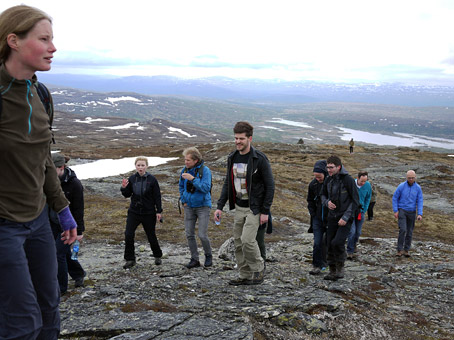
A workshop on the use of genomics techniques in natural populations was held June 23rd-25th in Selbu, a small village 40 km east of Trondheim, Norway. The workshop was organized by the CBD-members Arild Husby and Henrik Jensen and was funded by grants from the Norwegian Research Council and CBD. 29 researchers from 9 countries across Europe and N-America attended the workshop. Participants ranged from PhD-students to well established, and internationally leading researchers within the field. The shared interest of all participants and the main focus of the discussion was how we best can make use of the recent development of genomics techniques to answer key questions in ecology, genetics, conservation and evolution of natural populations. There was large diversity in the topics of the talks. Fortunately, most participants mainly presented work in progress,. Combined with the informal atmosphere at the workshop this resulted in many fruitful discussions. Hopefully, this will contribute to the role that use of genomics techniques will play in increasing our understanding of fundamental processes in natural populations.
Thomas Haaland defends his MSc thesis (18.8.2015)
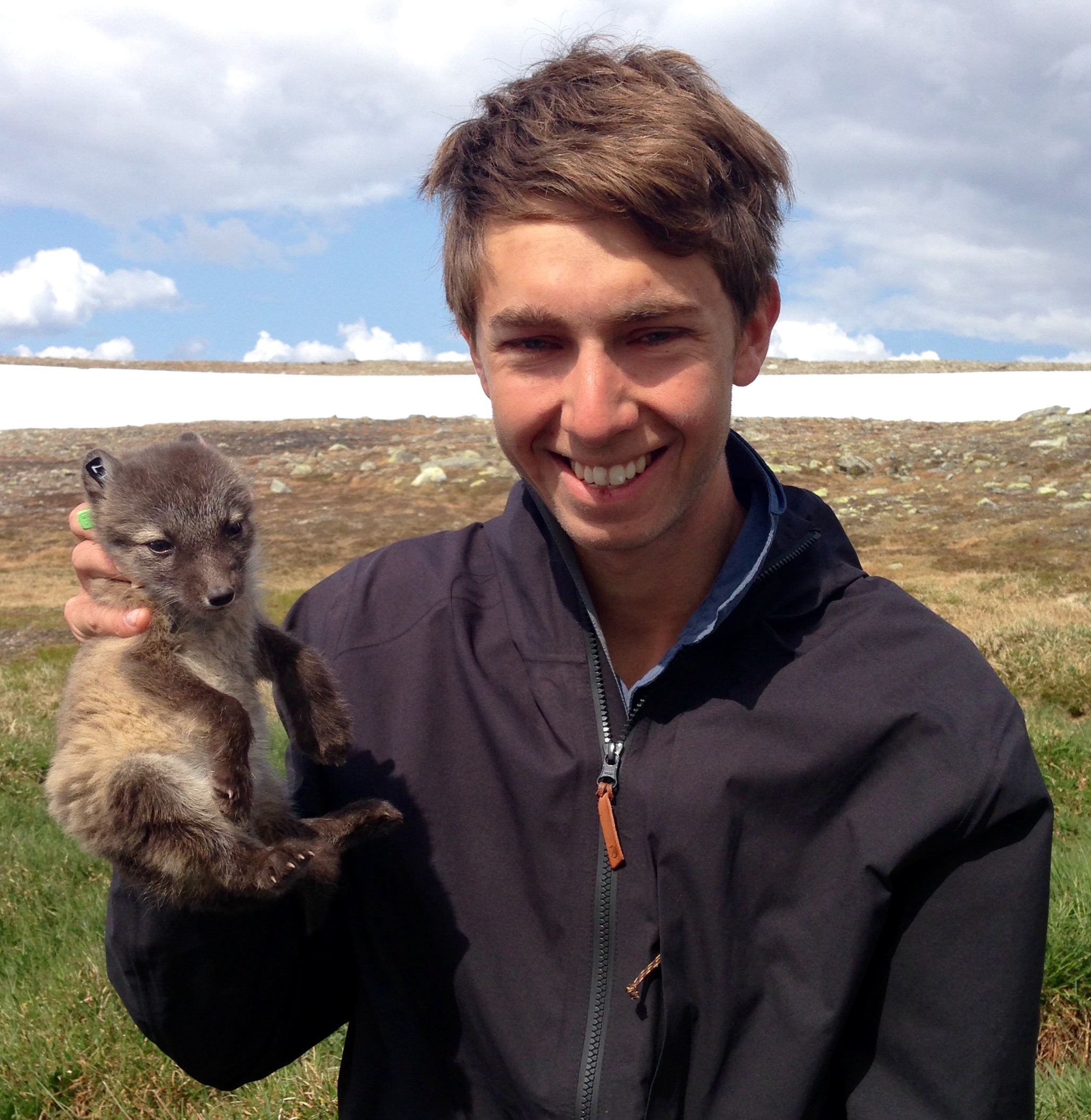 Monday August 24th Thomas Haaland will defend his MSc thesis and we will follow the new practice. He will therefore present his thesis at 12.00 in the CBD room, and you are all welcome to his talk: “A General Stochastic Dynamic Model of the Differential Allocation Hypothesis”.
Monday August 24th Thomas Haaland will defend his MSc thesis and we will follow the new practice. He will therefore present his thesis at 12.00 in the CBD room, and you are all welcome to his talk: “A General Stochastic Dynamic Model of the Differential Allocation Hypothesis”.
Elida Aarstad Skøien defens her MSc thesis (18.08.2015)
On thursday August 27th Elida Aarstad Skøien will defend her MSc Thesis (from the LUR programme) in CBD room at 9:00. «Causes and Consequences of Breeding Synchrony in the Snow Bunting (Plectrophenax nivalis)".
Supervisors are Hansen, Fossøy, Ringsby.
PhD position in Evolutionary Ecology (14.8.2015)
At the Faculty of Natural Sciences and Technology, Department of Biology there is a PhD position available. The position is financed by The Norwegian Research Council and has a special responsibility for the project “Evolutionary Responses to Variable and Unpredictable Environments”. Read more about the position here >>.
Award to CBD-members (03.08.2015)
The CBD-members Steinar Engen, Russell Lande and Bernt-Erik Sæther were selected by the Wildlife Society as recipients of the 2015 Wildlife Publications Award for the paper "Evolutionary consequences of non-selective harvesting in density-dependent populations" published in the American Naturalist 184 (6): 714-726 in 2014. The Award will be presented during the Wildlife Society 22nd Annual Conference in Winnipeg, Canada in October 2015.
Svalbard expedition with the sailboat Sillage (03.07.2015)
A one month expedition around Spitsbergen has just started, with the aim to collect samples and data for Mathilde Le Moullec's PhD and a new CBD project financed by Svalbards Environmental Protection Fund (B.B. Hansen). The goal of the latter project is to document current abundances and historical distributions of the wild Svalbard reindeer and link this with meta-population genetics. The study system represents a unique opportunity to examine effects of bottlenecks due to excessive harvest and local extinctions, recolonisation, as well as climate-related migration barriers. Thus, current and ancient DNA (from old bones and antlers) will be collected in addition to distance sampling data for estimation of spatial densities. Mathilde will also collect plant samples for dendrochronological measures of past vegetation growth in relation to climate and grazing pressure. Other expedition members are Morgan Bender (field assistant) and the crew, Marie and Christophe. First stop is Sørkapp Land on Friday 3rd July, next stops will be on Edgeøya and Barentsøya.
Master student from Finland visiting CBD (10.06.2015)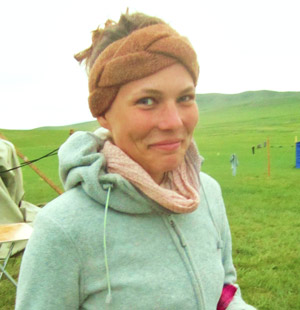
Emma Marjakangas is a Master's student from Finland staying here at CBD for 3 months as an Erasmus intern. She is finishing up with her Master's degree and will graduate soon from University of Jyväskylä. During her internship she will analyze fungal community datasets in order to predict the species richness and population sizes of wood-inhabiting fungi in a Finnish boreal forest.
Video presentation of recent Oikos paper (10.04.2015)
A short video presentation of a recent paper from the REINCLIM project on Svalbard reindeer can be watched here. The paper by Aline M. Lee and coworkers is published in Oikos with the following title: "An integrated population model for a long-lived ungulate: more efficient data use with Bayesian methods".
Master student visiting CBD (20.02.2015)
W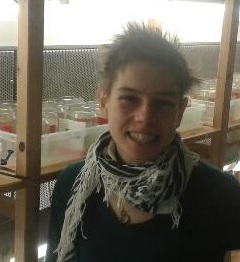 e welcome Laura Sereni who has joined the Daphnia lab of CBD! Laura is doing her masters degree at Ecole Normale Supérieure, Paris, and is also attached to the Université Pierre et Marie Curie. She will stay here for 4 months doing an Erasmus internship. In her experiments she will study how activity levels of Daphnia respond to different environmental cues such as population density and food abundance.
e welcome Laura Sereni who has joined the Daphnia lab of CBD! Laura is doing her masters degree at Ecole Normale Supérieure, Paris, and is also attached to the Université Pierre et Marie Curie. She will stay here for 4 months doing an Erasmus internship. In her experiments she will study how activity levels of Daphnia respond to different environmental cues such as population density and food abundance.
Visit AURORA-program (3.3.2015)
This week we are welcoming French scientists from INRA Bordeaux and CNRS at Gif/Yvette and colleagues from Oslo as part of the AURORA program (NFR / CNRS). The visitors are Antoine Kremer and Cyril Firmat from Bordeaux Arnaud Le Rouzic, Estelle Runneburger, Clémentine Renneville from CNRS ,Thomas Hansen and Christine Mayer from Oslo. They will stay until Thursday 5. March.
WORKSHOP: Ecological use of genomics (11.02.2015)
In end of June there will be a workshop on the use of genomics in natural populations with many leading researchers from Europe and US attending. The aim is to bring together researchers working on a diverse set of questions, methods and study systems which all use genomic tools in their approach. As we aim to keep the meeting small, attendance is by invitation only. We are very pleased that Prof. Leif Andersson will be joining us at this meeting. Leif is one of the foremost experts in the world on the genomics of animal domestication and has recently also started to work on wild systems about which he will talk about in this meeting. See his web-site for more information about his research.
The workshop is organised by Arild Husby (University of Helsinki) and Henrik Jensen (CBD) and is funded by grants from the Norwegian Research Council (to AH) and CBD.
Visiting CBD: Prof. Subhash Lele, Department of Mathematical and Statistical Sciences, University of Alberta, Canada.
Subhash is a statistician interested and excited about the applications of statistics to biological sciences in general and ecology in particular. His current statistical methodological focus is on developing inferential and computational methods for general hierarchical models. These methods include data cloning, estimating functions, composite likelihood and other approximate likelihood methods. His ecological interests are occupancy models, movement models, resource selection studies and wildlife surveys that utilize expert opinion. He is also active in developing methods for population dynamics and population viability analysis. Website
SAB-meeting in Trondheim 20-21st January 2015 (27.1.2015)
The Scientific Advisory Board (SAB) visited CBD last week. In connection with their visit, PhD-candidates and post-docs at the centre presented their projects and recent work to the SAB and all CBD members.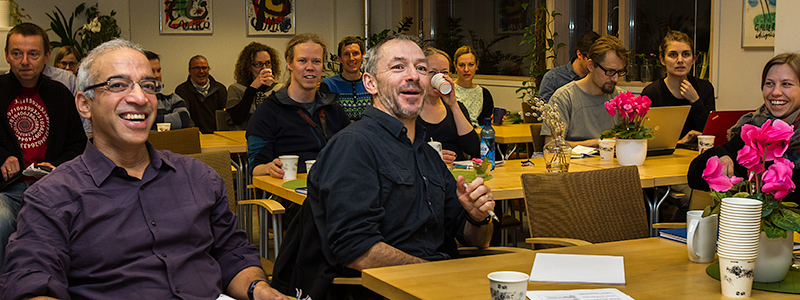
CBD-IMPRS Workshop on Statistical Approaches to Multivariate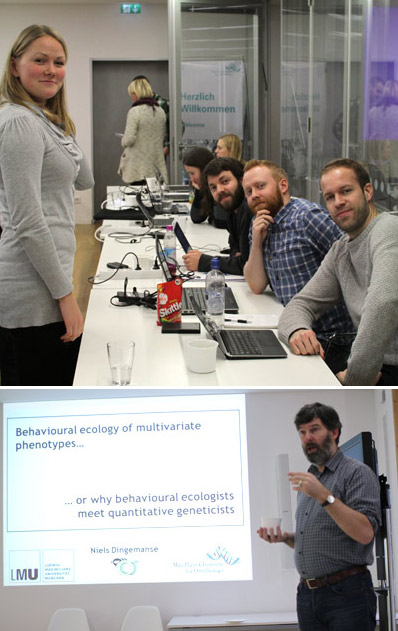 Phenotypes, 11-16th January 2015 (16.1.2015)
Phenotypes, 11-16th January 2015 (16.1.2015)
This week PhD students and staff from the CBD visited The Max Planck Institute for Ornithology (MPIO) located in Seewiesen (not far from to Munchen). The workshop was initiated by Jonathan Wright and Niels Dingemanse. In addition to them, Alastair Wilson, Ned Dochtermann, Geir H. Bolstad and Yimen Araya-Ajoy contributed with insightful lectures on different aspect of how to understand and analyze multivariate data. This generated a lot of interesting discussions. During the workshop, time was also allocated to practical demonstration of different statistical approaches – including that the students used their newly acquired knowledge on their own data.
Post doc Nerea Abrego (14.1.2015)
 Nerea Abrego defended her PhD at the University of the Basque Country (Spain), in December 2014. She studied how human-induced environmental changes affect wood-inhabiting fungal diversity and assembly processes at different spatial scales, and how these processes are related to functional traits and interaction networks. Currently, she collaborates with researchers from several European countries in a project which lies on disentangling the processes driving the composition of wood-inhabiting fungal communities in European beech forest reserves, as well as with researchers from the University of Jyväskylä (Finland) in a project which lies on assessing the impacts of forest management on poorly-known fungal species assemblages from boreal forests. During her postdoc in CBD, she aims to combine empirical, experimental and new modeling approaches for a better understanding of community dynamics more generally.
Nerea Abrego defended her PhD at the University of the Basque Country (Spain), in December 2014. She studied how human-induced environmental changes affect wood-inhabiting fungal diversity and assembly processes at different spatial scales, and how these processes are related to functional traits and interaction networks. Currently, she collaborates with researchers from several European countries in a project which lies on disentangling the processes driving the composition of wood-inhabiting fungal communities in European beech forest reserves, as well as with researchers from the University of Jyväskylä (Finland) in a project which lies on assessing the impacts of forest management on poorly-known fungal species assemblages from boreal forests. During her postdoc in CBD, she aims to combine empirical, experimental and new modeling approaches for a better understanding of community dynamics more generally.
CBD-researchers making the frontpage of PNAS (13.1.2015)
The paper "Evolutionary tipping points in the capacity to adapt to environmental change" by Carlos A. Botero, Franz J. Weissing, Jonathan Wright, and Dustin R. Rubenstein, published in the Proceedings of the National Academy of Sciences of the United States of America, managed to get the front cover of its issue. Read the paper here >>
2nd conference of Norwegian Ecological Society Ecological Change, changing ecology (12.1.2015)
News on the NØF2015 Conference in Bergen in March!We have extended the abstract deadline until the 30th January - some of us haven't managed to submit our abstracts yet, so we guessed that maybe some more of you plan to as well Click below to visit the Conference homepage and submit your abstract: http://nof2015.uib.no/
Dr. Katja Räsänen visiting CBD (12.1.2015)
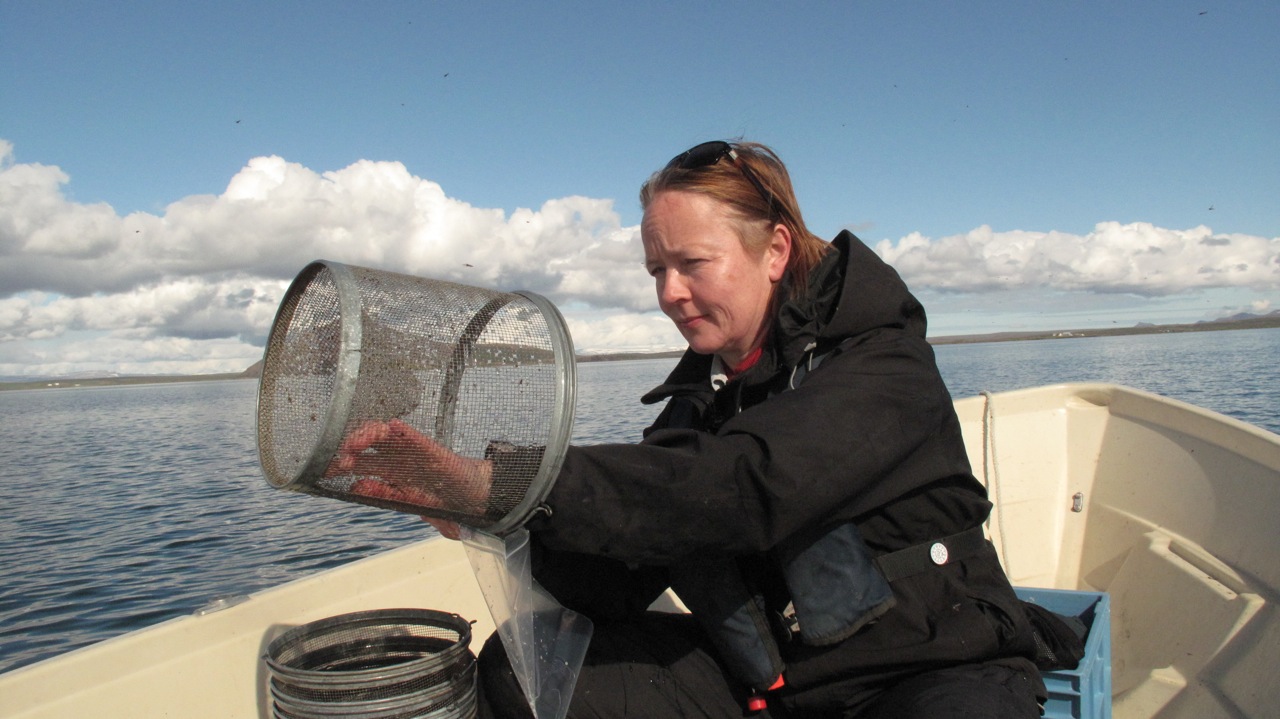 Dr. Katja Räsänen will visit CBD from January 12th to June 30th2015. Katja is usually working at the Department of Aquatic Ecology at Eawag, in Zürich, Switzerland. She is the leader of a research group which aims to understand responses of natural populations to natural and human induced environmental change at ecological time scales (i.e. within a few generations). Her research is primarily empirical but with a strong conceptual basis. An important core in her research are interactions between agents of selection (e.g. single vs. multiple stressors; selection vs. gene flow), the quantitative genetic basis of adaptation (maternal vs. direct genetic effects) and those between ecological and evolutionary processes. Large scale field and laboratory experiments, combined with field surveys, quantitative and molecular genetics, as well as proteomics is used to answer the questions. Her study systems include amphibians adapting to environmental acidification, three-spine sticklebacks adapting to ecologically divergent environments and aquatic alpine macroinvertebrate responses to glacial retreat.
Dr. Katja Räsänen will visit CBD from January 12th to June 30th2015. Katja is usually working at the Department of Aquatic Ecology at Eawag, in Zürich, Switzerland. She is the leader of a research group which aims to understand responses of natural populations to natural and human induced environmental change at ecological time scales (i.e. within a few generations). Her research is primarily empirical but with a strong conceptual basis. An important core in her research are interactions between agents of selection (e.g. single vs. multiple stressors; selection vs. gene flow), the quantitative genetic basis of adaptation (maternal vs. direct genetic effects) and those between ecological and evolutionary processes. Large scale field and laboratory experiments, combined with field surveys, quantitative and molecular genetics, as well as proteomics is used to answer the questions. Her study systems include amphibians adapting to environmental acidification, three-spine sticklebacks adapting to ecologically divergent environments and aquatic alpine macroinvertebrate responses to glacial retreat.
PhD position opening at Faculty for Nature and Science, NTNU (6.1.2015)
Seeking a highly motivated candidate for a PhD study (4 years) on the effects of parasites on a wild host passerine, the house sparrow. More information here.
NEW Climate Research Project (16.12.2014)
Today the Research Council of Norway announced the results from the evaluation of applications to the Climate Research program "Fri Klimaforskning". Researcher Tim Burton recieved funding for his project "Adaptive plasticity meets unpredictability: how will organisms cope with changing temperature variability?". He will perform his work at CBD in collaboration with Sigurd Einum, and with the external collaborators Anders Finstad at the NTNU Museum of Natural History and Archeology, and Bettina Zeis, University of Munster.
NEW FRIPRO-Projects (15.12.2014)
Two members of CBD were awarded a grant as Young Talented Researchers by the FRIPRO-program at the Research Council of Norway. These grants will fund the projects "Evolutionary responses to variable and
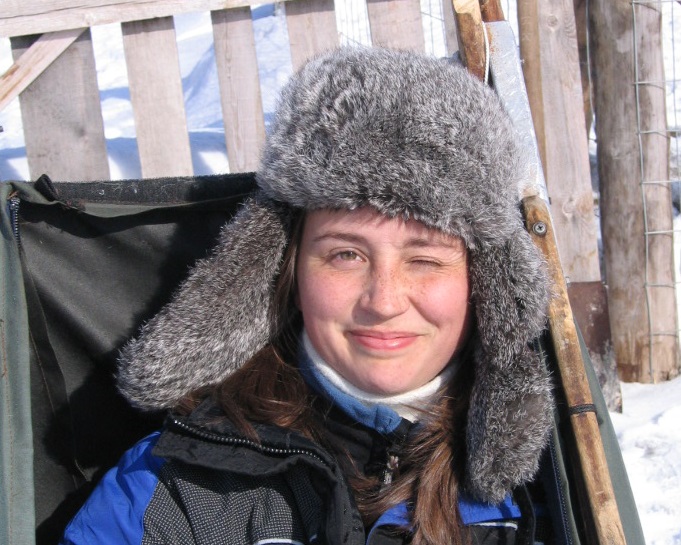
unpredictable environments: conditions, interactions and consequences" and "An epigenomic approach to 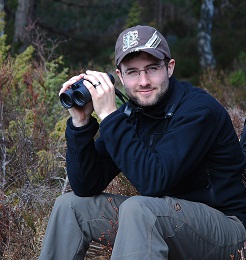 study seasonal timing of reproduction and phenotypic plasticity in the wild" lead by Irja Ida Ratikainen and Arild Husby, respectively.
study seasonal timing of reproduction and phenotypic plasticity in the wild" lead by Irja Ida Ratikainen and Arild Husby, respectively.
CBD PART OF A LARGE INTEGRATED PROJECT IN CLIMATE RESEARCH (15.12.2014)
The Programme in Climate Research at the Research Council of Norway have decided to fund the project "Sustainable management of renewable resources in a changing environment: an integrated approach across ecosystems". This large integrated project will be operated by CEES, University of Oslo with CBD and the Department of Arctic and Marine Biology, UiT The Arctic University as the two major partners. The project will involve collaboration with many national and international institutions and aims to develop sustainable harvesting strategies of renewable resources in a changing climate using an ecosystem perspective.
PhD Javier Jarillo vistis (2.12.2014)
 Javier Jarillo is a PhD student in the Out of Equilibrium Dynamics Group of the Universidad Complutese de Madrid (UCM) with a fellowship of the Spanish Ministry of Education. He studies out-of-equilibrium systems and stochastic processes, and their applications in diverse biological systems, which range from biomolecular systems to ecological systems. He collaborates with other researchers at the CBD financed by the European project “Stochastic dynamics in Ecology“ (005-ABEL-CM2014-A) founded by the the NILS Science and Sustainability program under the EEA Grants scheme. At the CBD, he aims to study stochasticity in ecological systems, specifically the effects of environmental stochasticity in spatial correlations of populations in two species models, and the evolutionary responses to fluctuating selection. He visits CBD from 30th January to 7th May 2015.
Javier Jarillo is a PhD student in the Out of Equilibrium Dynamics Group of the Universidad Complutese de Madrid (UCM) with a fellowship of the Spanish Ministry of Education. He studies out-of-equilibrium systems and stochastic processes, and their applications in diverse biological systems, which range from biomolecular systems to ecological systems. He collaborates with other researchers at the CBD financed by the European project “Stochastic dynamics in Ecology“ (005-ABEL-CM2014-A) founded by the the NILS Science and Sustainability program under the EEA Grants scheme. At the CBD, he aims to study stochasticity in ecological systems, specifically the effects of environmental stochasticity in spatial correlations of populations in two species models, and the evolutionary responses to fluctuating selection. He visits CBD from 30th January to 7th May 2015.
Maja Tarka (25.11.2014)
Maja Tarka is starting a post-doc at CBD with C. Pelabon, B.E. Sæther and T.F. Hansen (UiO). Maja has defended her PhD at Lund University in 2012. She has worked on the evolutionary dynamics of migration and breeding of wild birds with D. Hasselquist and B. Hansson. She had a first post-doc on genomics of speciation in endemic finches on remote islands at CIBIO in Portugal with M. Melo and B. Hansson. Maja will now work on various subjects including temporal variation in fitness in bird populations and trying to understand why quantitative traits differ in their evolvability.
Field work in Costa-Rica (15.10.2014)
Elena Albertsen and Øystein H. Opedal have reached Costa-Rica and located their first Dalechampia populations. They will both stay in Costa-Rica until early January 2015 to study the effects of local variation in pollinator fauna on the morphology of the Dalechampia blossom. Their main questions are 1) to analyze how selection exerted by pollinators and seed predators on several traits of the Dalechampia blossom varies spatially and temporally, and 2) whether the degree of herkogamy (spatial separation between male and female flowers to prevent self-pollination) varies with the availability of pollinators. This work is done in collaboration with R. Pérez-Barrales and W. S. Armbruster from Portsmouth university who will soon join them on the field for few weeks.
Linn-Karina Selvik (19.09.2014)
Linn-Karina started working as a research technician 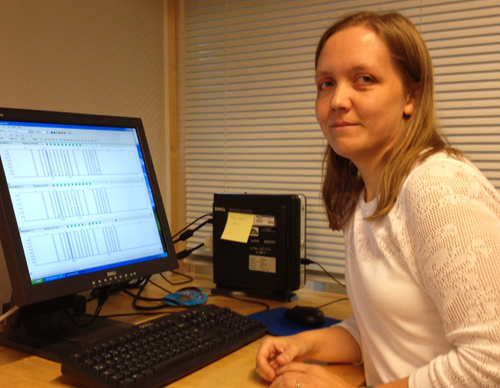 at CBD 1 September. She will be part of the research group of Dr. Henrik Jensen and employed on the project "The effect of population size on short-term rates of evolution in natural populations" funded by the Norwegian Research Council. Her responsibilities will be to carry out molecular genetic laboratory work and various bioinformatics analyses related to our research on genetics and genomics of house sparrows. In addition, she will manage and maintain the house sparrow BioBank, which now consist of more than 36 000 DNA and RNA samples from individual house sparrows. Linn-Karina has a strong background in molecular biology, has previously carried out research on the effects of gastrin on gene expression in cancer cells, and finished her PhD-thesis in Molecular medicine in 2013.
at CBD 1 September. She will be part of the research group of Dr. Henrik Jensen and employed on the project "The effect of population size on short-term rates of evolution in natural populations" funded by the Norwegian Research Council. Her responsibilities will be to carry out molecular genetic laboratory work and various bioinformatics analyses related to our research on genetics and genomics of house sparrows. In addition, she will manage and maintain the house sparrow BioBank, which now consist of more than 36 000 DNA and RNA samples from individual house sparrows. Linn-Karina has a strong background in molecular biology, has previously carried out research on the effects of gastrin on gene expression in cancer cells, and finished her PhD-thesis in Molecular medicine in 2013.
Erlend Fossen (01.09.2014)
Erlend will work with the highly suitable model organism 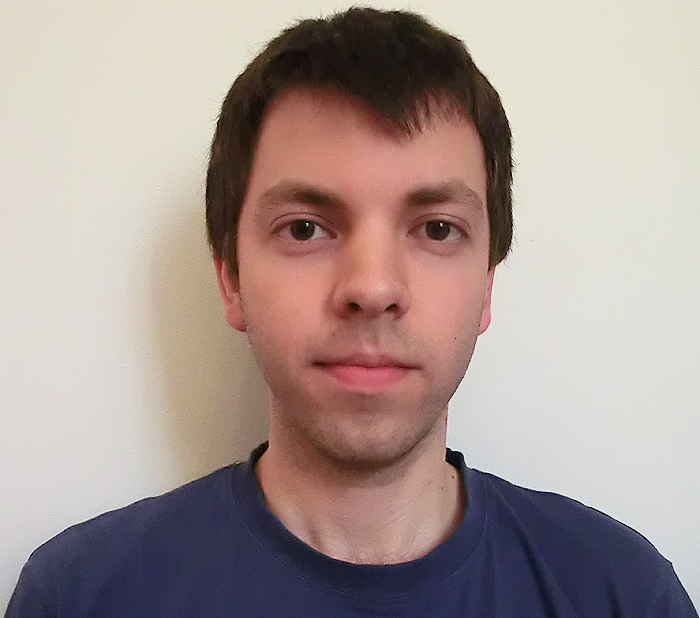 Daphnia (waterfleas), which is representative for a wide range of key species in freshwater and marine food webs, and focus on one easily controlled environmental factor (temperature). He will study some target traits which may have effects on fitness that depend on both temperature and population density, and determine their potential for evolutionary changes. He will quantify how variation in temperature- and density-responses in these traits influences fitness across thermal regimes and population densities. The results obtained are expected to yield novel understanding of links between evolutionary and ecological responses to environmental change in general, and more specifically for temperature changes.
Daphnia (waterfleas), which is representative for a wide range of key species in freshwater and marine food webs, and focus on one easily controlled environmental factor (temperature). He will study some target traits which may have effects on fitness that depend on both temperature and population density, and determine their potential for evolutionary changes. He will quantify how variation in temperature- and density-responses in these traits influences fitness across thermal regimes and population densities. The results obtained are expected to yield novel understanding of links between evolutionary and ecological responses to environmental change in general, and more specifically for temperature changes.
Varvara Iashchenko (26-08-2014)
Varvara Iashchenko started on 11-th of August as 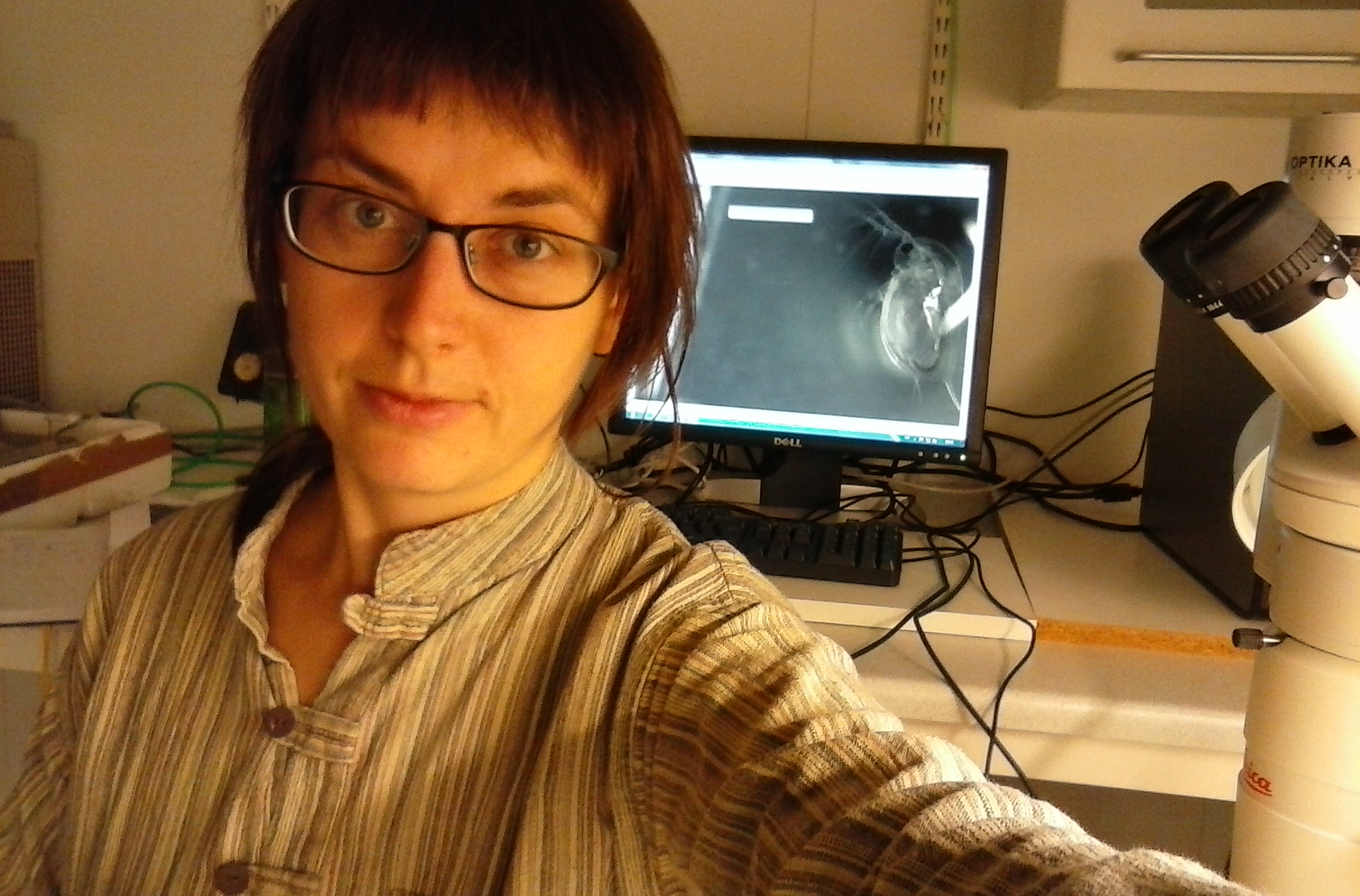 a research technician at the CBD, she will be working in the Dapnhia lab on the project "Eco-evolutionary dynamics of thermal reaction norms" funded by the Norwegian Research Council.
a research technician at the CBD, she will be working in the Dapnhia lab on the project "Eco-evolutionary dynamics of thermal reaction norms" funded by the Norwegian Research Council.
Varvara graduated in 2004 from the Saint-Petersburg State University with specialization on zoology of invertebrates and later worked on fresh-water symbiosis of alga and ciliates. She will be responsible for Daphnia pulex cultures, their maintenance and growth, establishing protocols for measurement experiments, helping researchers with routine tasks and methods.
Mathilde Le Moullec (22-06-2014)
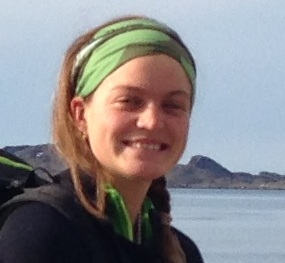 CBD welcomes Mathilde Le Moullec, which on 1 August started her PhD position at CBD. The position is financed by the NT Faculty. Mathilde did her undergraduate studies in Lyon, Tromsø (UiT) and Svalbard (UNIS), with the following title of the MSc thesis: "Ungulate population monitoring in a tundra landscape: evaluating total counts and distance sampling accuracy".
CBD welcomes Mathilde Le Moullec, which on 1 August started her PhD position at CBD. The position is financed by the NT Faculty. Mathilde did her undergraduate studies in Lyon, Tromsø (UiT) and Svalbard (UNIS), with the following title of the MSc thesis: "Ungulate population monitoring in a tundra landscape: evaluating total counts and distance sampling accuracy".
Mathilde's PhD research will focus on how climatic variation and large-scale weather patterns influence the long-term dynamics of high Arctic terrestrial ecosystems and the interactions among their key components. Collaborators include Univ. Aberdeen, NPI and NINA. Supervisors at CBD/NTNU will be Brage Bremset Hansen and Bernt-Erik Sæther.
Håkon Holand gets his PhD-title (20-06-2014)
This Friday Håkon Holand defended his PhD-thesis entitled "The parasite Syngamus trachea in a metapopulation of house sparrows". Håkon first gave a trial lecture on the assigned topic "Pattern and process in spatio-temporal dynamics of parasite-host dynamics", before he discussed his work with the two opponents Professor Peter J. Hudson, Penn State University, US, and Professor Xavier Lambin, University of Aberdeen, UK. CBD contratulates Håkon with a well deserved degree.
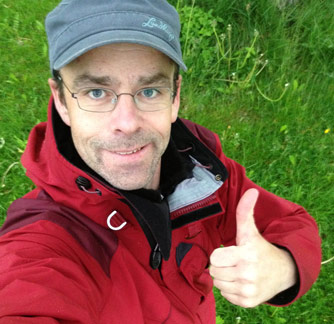 Dr. Henrik Jensen was today offered the position as associate professor in population genetics at the Department of Biology, NTNU. Dr. Jensen has been a member of CBD for most of his research career. CBD congratulates with the great achievement.
Dr. Henrik Jensen was today offered the position as associate professor in population genetics at the Department of Biology, NTNU. Dr. Jensen has been a member of CBD for most of his research career. CBD congratulates with the great achievement.
Eirin Marie Bjørkvoll defended her PhD (06-06-2014)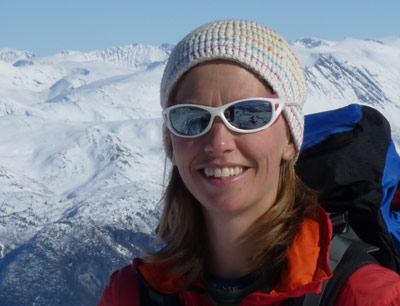
After a trial lecture on the topic "Cost of reproduction and their influence on life-history evolution", and a public discussion of her thesis (Life-history variation and stochastic population dynamics in vertebrates) with the two opponents, prof. Jeffrey A. Hutchings, Dalhousie Unviersity, Canada, and dr. Michael Schaub, Swiss Ornithological Institute, Eirin Marie Bjørkvoll obtained her PhD today. CBD congratulates with a well deserved title.
The Sparrow-projct in media (05.05.2014)
This weekend the house sparrow project was covered in commercial media, with comments from Prof. Bernt Erik Sæther. Read more at VG and forskning.no
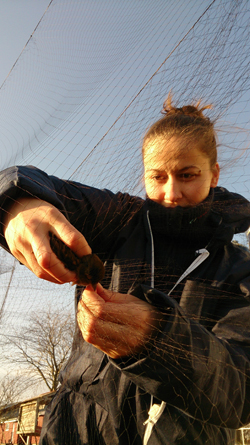 The winter's house sparrow fieldwork is well under way, and has been very successful so far. PhD student Ane Myhre and her fieldworkers are carrying out experiments to alter demographic stochasticity and effective population size in a set of natural populations. In another set of natural populations postdoc Bernt Rønning and his team of PhD-students, MSc-students and fieldworkers is doing large-scale experimental studies of basal metabolic rate.
The winter's house sparrow fieldwork is well under way, and has been very successful so far. PhD student Ane Myhre and her fieldworkers are carrying out experiments to alter demographic stochasticity and effective population size in a set of natural populations. In another set of natural populations postdoc Bernt Rønning and his team of PhD-students, MSc-students and fieldworkers is doing large-scale experimental studies of basal metabolic rate.

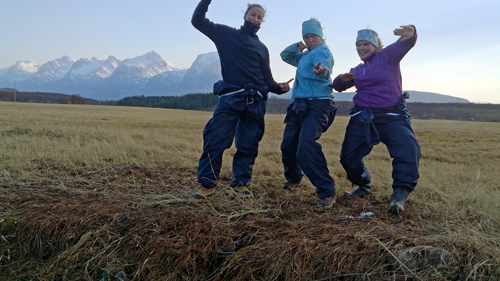
Postdoc Marlène Gamelon (24-02-2014)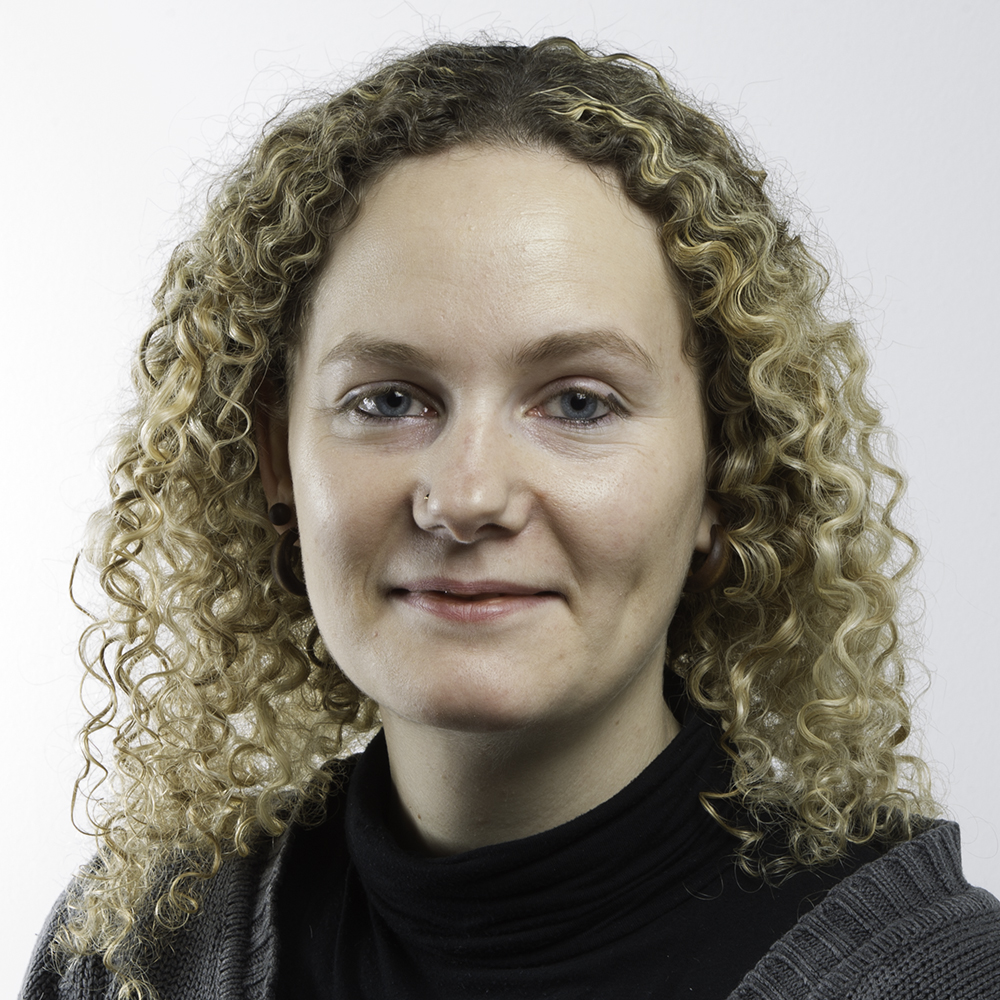
We welcome Marlène Gamelon to CBD!
Her research at CBD will be as follows: "Life history traits co-vary with each other, shaped by evolutionary trade-offs, at the individual scale leading to a large range of demographic tactics. Demographic tactics are thus variable among individuals, among populations but also among species. My main research activity seeks to understand the responses of species spanning a large range of life history tactics to variable environments. My research thus combines evolutionary demography, population dynamics and modelling. Key words: Demography, Evolution, Life history, Population dynamics, Wildlife".
The March issue of the Smithsonian Magazine features a longer article on Svalbard reindeer research and the REINCLIM project lead by CBD. This story also provides insights into the life in field in the High Arctic (read the article and see video clip online here : >>.
Course in Stochastic population models (16-12-2013)
The course "Stochastic population models" (ST2302) will be given by professor Steinar Engen during spring 2014. The course deals with different models for population growth rate, demographic and environmental stochasticity, effects of density and age-structure on population growth, harvesting models, sensitivity analyses and diffusion processes. For more information, see here >>
Warmer, wetter, wilder Svalbard winters (27-11-2013)
A new CBD project called «WINTER RAIN» has received support from the Svalbard Environmental Fund. This multidisciplinary project will analyse historical and future changes in winter climate in Svalbard, and explore the ecological and societal consequences of such cha
the Svalbard Environmental Fund. This multidisciplinary project will analyse historical and future changes in winter climate in Svalbard, and explore the ecological and societal consequences of such cha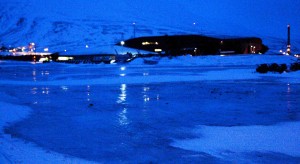 nges. During recent decades the Svalbard winter has become milder, increasing the probability of precipitation falling as rain rather than snow. Extreme warm spells and rainfall has major impact on the environment by increasing the danger of avalanches, influencing the permafrost, and generating ground-ice on the tundra. Project leader is Brage B. Hansen, and collaborators are Akvaplan-NIVA, UNIS, Norwegian Meteorological Institute, Norwegian University of Life Sciences, and University of Aberdeen.
nges. During recent decades the Svalbard winter has become milder, increasing the probability of precipitation falling as rain rather than snow. Extreme warm spells and rainfall has major impact on the environment by increasing the danger of avalanches, influencing the permafrost, and generating ground-ice on the tundra. Project leader is Brage B. Hansen, and collaborators are Akvaplan-NIVA, UNIS, Norwegian Meteorological Institute, Norwegian University of Life Sciences, and University of Aberdeen.
CBD at the Climate 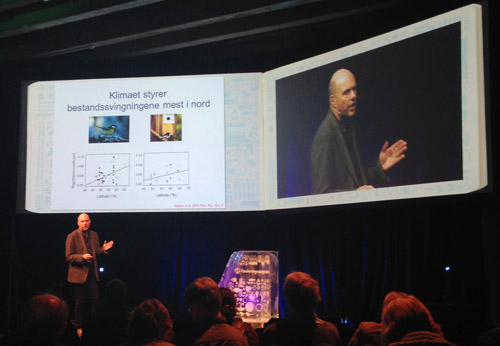 Conference (31-10-2013)
Conference (31-10-2013)
On the Climate Conference of the Norwegian Research Council, Oslo 30 October, Bernt-Erik Sæther gave a talk: "A wilder, milder and wetter climate: does it matter for Norwegian animals?"
Successful opening conference (21-10-2013)
The opnening conference for the Centre for Biodiversity Dynamics was held October 14-16. The faculty dean, Anne Borg, gave the opening speak on Monday, and the next two days were filled with interesting presentations and discussions. List of speakers and photographic highlights from the conference can be found here >>
Professors Bernt-Erik Sæther and Steinar Engen at the CBD is rewarded the Møbius prize, given annually by the Norwegian Research Council for outstanding research. The Research Counsil highlights Sæther and Engen's interdisciplinary and international outstanding research on modelling biological processes in time and space. The two winners will recieve the prize during the annual Evening of Excellence in Oslo Concert hall.
Opening conference (14-08-2013)
On October 14-18 2013 the opening conference of CBD entitled "The eco-evolutionary synthesis: status and future directions" will be held at NTNU. There will be a mixture of talks by CBD-people, members of the scientific board, and invited speakers. More info will come soon.
CBD's centre coordinator (12-06-2013)
Solveig Johnsen is now employed in full position as the centre coordinator at CBD. She has long experience with administrative work at the SFI at the Faculty of Engineering Science and Technology. We all wish her welcome to the centre.
Opening of the Centre for Biodiversity Dynamics (10-06-2013)
The four new Centres of Excellence (SFF) at NTNU were officially opened today with a ceremony at NTNU. Representatives from the Norwegian Research Council of Norway, the Rectorate at NTNU, and the four centre leaders gave speaches, and highlighted the importance of SFF for research activity at NTNU. You can read more about the opening here (in Norwegian) >>
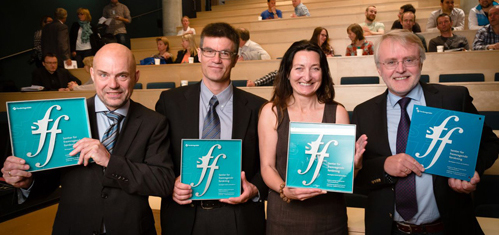 The leaders of the four new Centres of Excellence at NTNU. From left: : Bernt-Erik Sæther, Asgeir Sørensen, May-Britt Moser and Terje Espevik. Photo: Thor Nielsen/ NTNU Info.
The leaders of the four new Centres of Excellence at NTNU. From left: : Bernt-Erik Sæther, Asgeir Sørensen, May-Britt Moser and Terje Espevik. Photo: Thor Nielsen/ NTNU Info.Official opening of the Centre for Biodiversity Dynamics (07-06-2013)
(07-06-2013)
From June 1 2013 the Centre for Biodiversity Dynamics is established as a Centre of Excellence (SFF-III). The official opening of all the four new SFFs at NTNU will occur on June 10. Program for the official opening can be found here >>.
New paper from CBD in Science (26-04-2013)
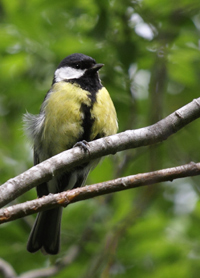 Researchers from CBD has contributed to a paper on how great tits cope with climate change, recently published in Science. Earlier springs have caused an advanced peak emergence of caterpillars. Great tits have not been able to advance their timing of egg-laying to keep pace with the caterpillars. This has caused an increasing mismatch between the food peak and the hatching of newborns, and early offspring survival in great tits have consequently declined. Density dependent juvenile survival do however come to the rescue - the decline in early offspring survival have been offset by increased juvenile survival as well as increased immigration during winter. The mismatch have therefore so far not caused decline in pre-breeding population size.
Researchers from CBD has contributed to a paper on how great tits cope with climate change, recently published in Science. Earlier springs have caused an advanced peak emergence of caterpillars. Great tits have not been able to advance their timing of egg-laying to keep pace with the caterpillars. This has caused an increasing mismatch between the food peak and the hatching of newborns, and early offspring survival in great tits have consequently declined. Density dependent juvenile survival do however come to the rescue - the decline in early offspring survival have been offset by increased juvenile survival as well as increased immigration during winter. The mismatch have therefore so far not caused decline in pre-breeding population size.
Link to the article: >>
Two new post-doctoral positions at CDB (02-04-2013)
Two two-year post-doctoral positions in Evolutionary Ecology are available at the Centre for Biodiversity Dynamics. The fellowships are financed by an Advanced Research Grant to the project "Stochastic population biology in a fluctuating environment" from the European Research Council. Both candidates will work on models of evolutionary processes in fluctuating environments. More information can be found here >>.
Former Centre-member new director at the Museum of Natural 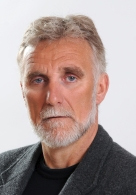 History and Archeology (21-03-2013)
History and Archeology (21-03-2013)
Former Centre-member has been appointed as the new director of NTNU's Museum of Natural History and Archaeology. He is currently director of the Norwegian Nature Inspectorate (SNO).
Andersen was an active member of the Centre while he was professor at the Department of Biology and at the Section for Natural History at the Museum.
The centre is now "Centre for Biodiversity Dynamics" (14-02-2013)
In connection with the establishment of the SFF (Centre of Excellence), CCB has now been renamed to Centre for Biodiversity Dynamics. The new name captures better the core activity at the centre; to understand processes behind spatial and temporal variation in biological diversity, at different organismic levels (from genes to ecosystems).
---
New reports about spread of alien species (23-01-2013)
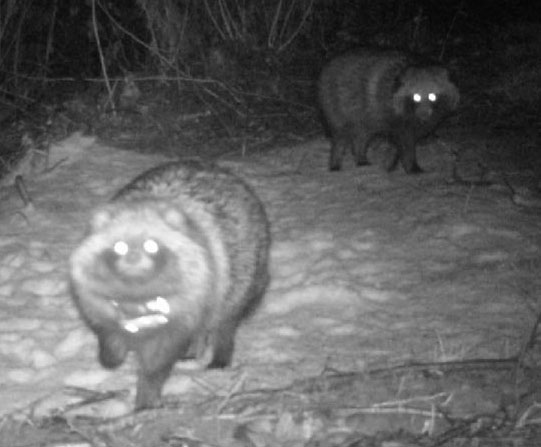 Many alien species are regarded as harmful for native flora and fauna. Several of the species are introduced and spread by humans. For instance, alien conifers have long been an integrated part of forestry in Norway, and the raccoon dog was released in the former Soviet Union to increase fur hunting possibilities. In two reports to the Norwegian Directorate for Nature Management, members of the Centre of Conservation Biology have summarised the state of knowledge about spread and effects of alien conifers, and the movement pattern and dispersal ecology of raccoon dogs. More about the content and links to the reports can be found at the Norwegian Directorate for Nature Management's web pages:
Many alien species are regarded as harmful for native flora and fauna. Several of the species are introduced and spread by humans. For instance, alien conifers have long been an integrated part of forestry in Norway, and the raccoon dog was released in the former Soviet Union to increase fur hunting possibilities. In two reports to the Norwegian Directorate for Nature Management, members of the Centre of Conservation Biology have summarised the state of knowledge about spread and effects of alien conifers, and the movement pattern and dispersal ecology of raccoon dogs. More about the content and links to the reports can be found at the Norwegian Directorate for Nature Management's web pages:
About alien conifers >>
About raccoon dog >>
---
CCB in Science (17-01-2013)
Today, a paper entitled «Climate Events Synchronize the Dynamics of a Resident Vertebrate Community in the high Arctic» was published in Science, with lead authors from CCB and co-authors from NPI, NINA and UIT in Tromsø. The paper demonstrates for the first time how an entire community of species may be driven into synchronous fluctuations by climate. The high-arctic tundra study system in Svalbard hosts only four vertebrates in winter, all of which are influenced by rain-on-snow events in winter. Heavy rain-on-snow generates icing on the tundra, blocking forage for the herbivores (wild reindeer, rock ptarmigan, and sibling vole) and causing their populations to crash simultaneously. The arctic fox, which to a large degree relies on reindeer carcasses in winter and spring, crashes one year after the herbivores because of a distinct scarcity of carcasses in the winter following an icy (carcass-rich) winter. Rain-on-snow and icing events are expected to become more common throughout the circumpolar Arctic and have the potential to strongly 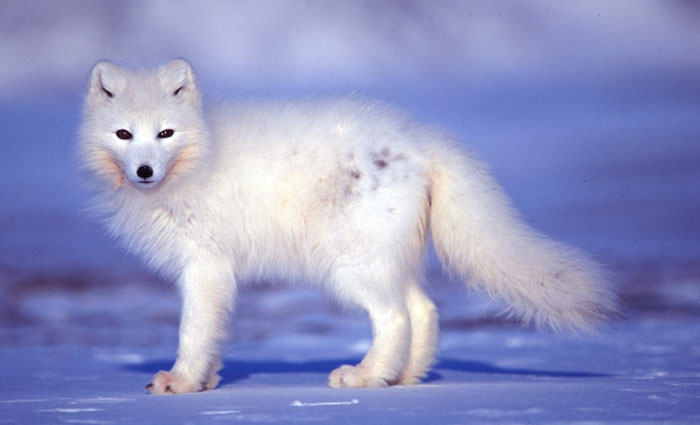 influence ecosystem functioning and stability.
influence ecosystem functioning and stability.
The study was financed by the Norwegian research Council (NORKLIMA) and the European Research Council.
Link to press release >>
Link to article >>
Link to Editor's summaries >>
---
New projects at the centre (05-12-2012)
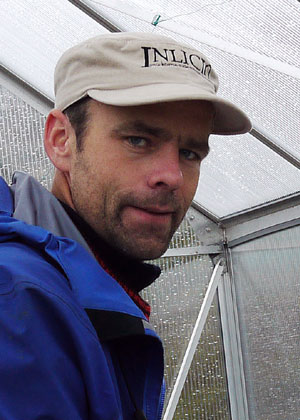 We are pleased to announce
We are pleased to announce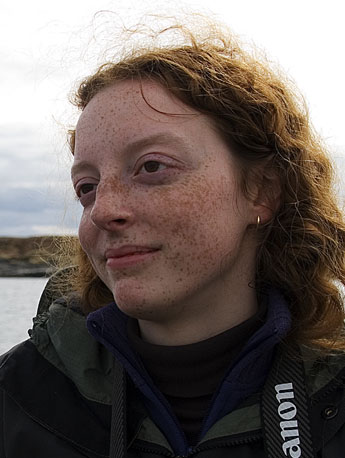 that the project "The effect of population size on short-term rates of evolution in natural populations" by dr. Henrik Jensen and dr. Aline Magdalena Lee's application for a post doc with the project "Effects of individual heterogeneity on stochastic population processes: the case of nonbreeders" have received support by the Research Council of Norway through the FRIPRO.
that the project "The effect of population size on short-term rates of evolution in natural populations" by dr. Henrik Jensen and dr. Aline Magdalena Lee's application for a post doc with the project "Effects of individual heterogeneity on stochastic population processes: the case of nonbreeders" have received support by the Research Council of Norway through the FRIPRO.
---
CCB-member Aline M. Lee with successful Marie Curie application
CCB researcher Aline Magdalena Lee has been invited to negotiate a Marie Curie IOF grant. The project will include a two year stay at the Steve Beissinger lab, University of California, Berkeley, followed by a year in the research group of Jane Reid, The University of Aberdeen. The proposed project is focused on analyzing the role of nonbreeders in driving population processes and extinction risk, by developing and analyzing new stochastic population models and applying them to two long-term datasets on wild bird populations (Green-rumped parrotlets and European shags).
invited to negotiate a Marie Curie IOF grant. The project will include a two year stay at the Steve Beissinger lab, University of California, Berkeley, followed by a year in the research group of Jane Reid, The University of Aberdeen. The proposed project is focused on analyzing the role of nonbreeders in driving population processes and extinction risk, by developing and analyzing new stochastic population models and applying them to two long-term datasets on wild bird populations (Green-rumped parrotlets and European shags).
---
The Research Council of Norway (NFR) has today appointed our centre as a "Senter for Fremragende Forskning" (CoE). We are one of 13 new CoE in Norway. More information will follow.
For more details regarding the new centres in Norway, see the announcement from NFR here: (Norwegian, English).
---
CCB-members organise and participate at workshop at the Royal Society of London
Prof. Christophe Pélabon and colleagues has been strongly involved in organising a workshop at the Royal Society of London. The theme of the workshop was "Canalisation, Modularity, Phenotypic Integration, and Adaptive Accuracy", and it was held at the Kavli Royal Society International Centre, at the Chicheley Hall, UK. Prof. W.S. Armbruster was the main organiser of the workshop, and 20 researchers from 9 countries participated on this 2-days event.
---
New book about wild ungulates in Norway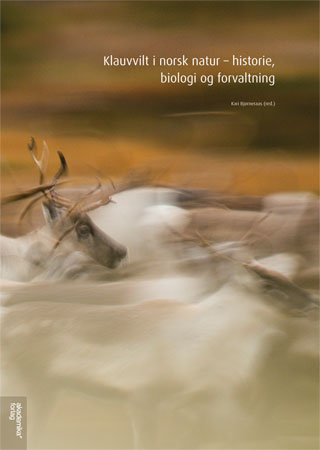
A new book has just been launched, entitled "Klauvvilt i norsk natur - historie, biologi og forvaltning" (Wild ungulates in Norwegian nature - history, biology and management). The book is financed by the Norwegian Directorate for Nature Management, as well as CCB. The book is edited by dr. Kari Bjørneraas (former CCB-employee), and CCB-members have contributed to several of the chapters. The book is written in Norwegian, and more information can be found from the publiser Akademika forlag which also offers online purchase.
---
Public information about research
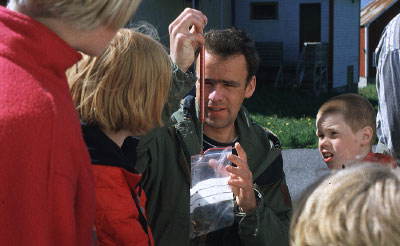 Activities at CCB received considerable public attention in 2011. Our researchers appeared numerous times in national public media such as television (NRK Newton), radio (NRK, P5) and newspapers (Adressa, Forskning.no). In addition, our projects attracted considerable local interests (e.g. Helgelands Blad). Further activities will be facilitated by a generaous grant from NTNU as part of NTNU's incentive to inform the public about ongoing research.
Activities at CCB received considerable public attention in 2011. Our researchers appeared numerous times in national public media such as television (NRK Newton), radio (NRK, P5) and newspapers (Adressa, Forskning.no). In addition, our projects attracted considerable local interests (e.g. Helgelands Blad). Further activities will be facilitated by a generaous grant from NTNU as part of NTNU's incentive to inform the public about ongoing research.
---
CCB has moved
CCB is now in the process of moving into a new area of the Realfagbygget at NTNU. The new area is located just above the main entrance of the building, and members of CCB will now have offices in the same wing on the 3rd floor, and in close proximity of each other.
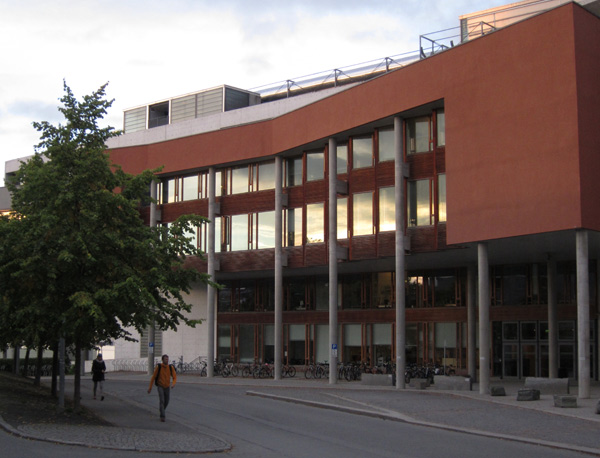
Members of CCB began the process of
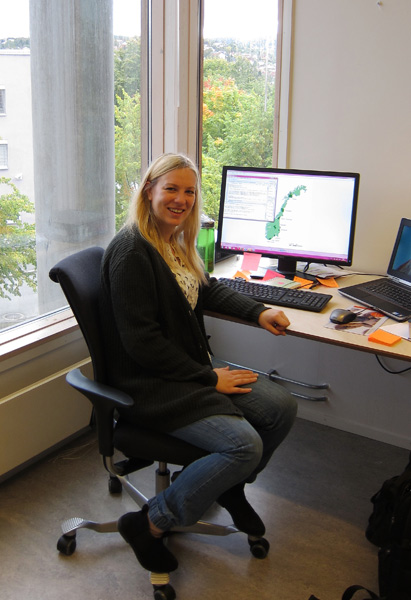 moving into their new offices early this week, and most of them are now settled in the new area. More information about the process of relocation will come.
moving into their new offices early this week, and most of them are now settled in the new area. More information about the process of relocation will come. 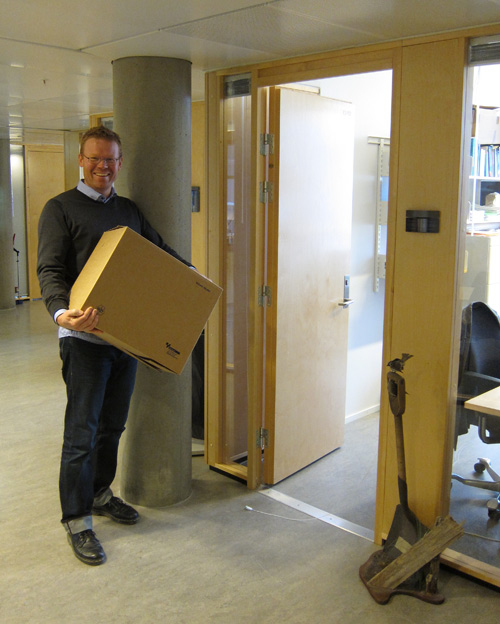
---
According to a study by researchers from Spain and Norway published in Nature - Dinosaurs were warm-blooded reptiles
The journal Nature has published a study analysing the lines of arrested growth (LAG) in the bones of around a hundred ruminants, representative of the specific and ecological diversity of that group of mammals. The results show that the presence of these lines is not an indicator of an ectothermic physiology (does not generate internal heat), as had previously been thought, since all warm-blooded mammals have them. The study therefore dismantles the key argument of the hypothesis that dinosaurs could have been cold-blooded reptiles. The main work was carried out by researchers from the Institut Català de Paleontologia Miquel Crusafont (ICP), in collaboration with a researcher from the Norwegian Polar Institute and Centre of Conservation Biology (CCB) at the Norwegian University of Science and Technology (NTNU).
Methods used in the study may be of crucial importance for investigating the effects of climate change on ruminants.
More information can be found in the press release (Nordic version) >>
or at Nature website >>
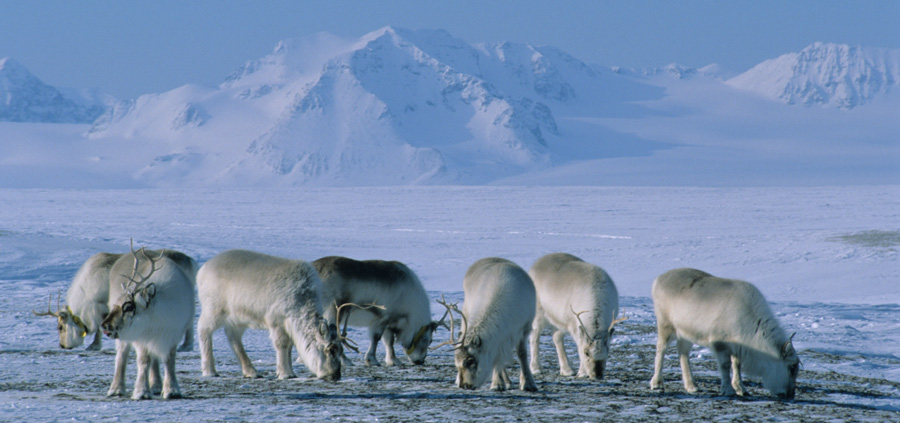
---
CCB improves method for ecological risk 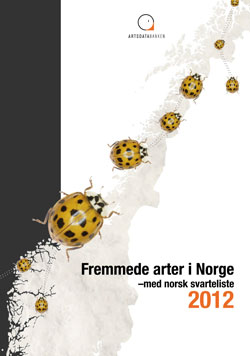 assessment of alien species
assessment of alien species
During the conference NATUR 2012, the Norwegian Biodiversity Information Centre (NBIC) publishes a complete listing of all 2320 alien species known to occur in Norway, classified according to their ecological risk. The set of criteria used in this ecological risk assessment has been developed by CCB, and evaluates all species according to their invasion potential and their ecological effects on native species and landscapes. In being semi-quantitative and generic, this set of criteria represents a great improvement over the earlier Norwegian Black List (2007). At the same time, this listing of alien species is the first complete national inventory and risk assessment of alien species world-wide.
---
Report from the workshop at Helgeland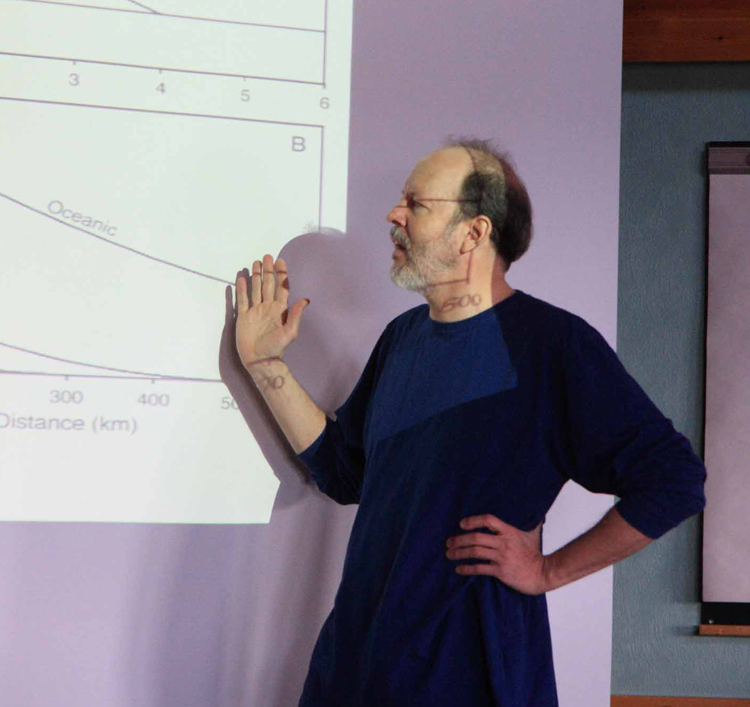
This week (23-27 April) the Center for Conservation Biology arranges a workshop in "*Stochastic demography in fluctuating environments: theory and empirical patterns. The occasion for the workshop is Professor Russell Lande's award of the Balzan Prize 2011 for Theoretical Biology or Bioinformatics. In the stimulating programme Russell Lande, together with Steinar Engen and Bernt-Erik Sæther and coworkers share their advanced insight into stochastic processes in time and space. The 35 international participants are introduced to theory and various modeling techniques through lectures and discussions. The various techniques are also applied through practical exercises during the workshop.
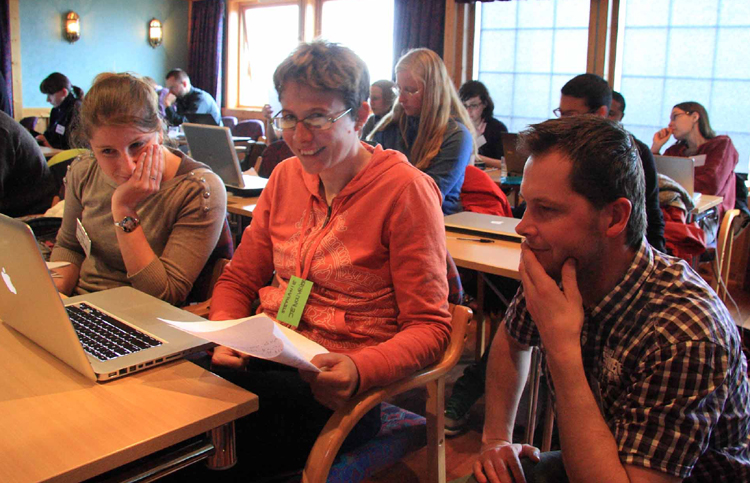 The workshop is arranged at the beautiful remote island Lovund off the coast of Helgeland in northern Norway. The puffins have arrived, the house sparrows are preparing the breeding season and the white tailed sea eagles are circling over the island - and the weather is beautiful, which makes a perfect frame for the workshop.
The workshop is arranged at the beautiful remote island Lovund off the coast of Helgeland in northern Norway. The puffins have arrived, the house sparrows are preparing the breeding season and the white tailed sea eagles are circling over the island - and the weather is beautiful, which makes a perfect frame for the workshop.
---
Research at CCB on Norwegian television
Thursday 29. March, NRK will feature the sparrow project run by CCB. This will be presented at Schrødingers Katt at NRK1 Thursday 29. March at 19:45, and at NRK2 the following Saturday at 15:30.
---
Prof. Sigurd Einum reaches second stage of ERC grant evaluation
We are happy to announce that ‘The Starting Grant'- project "Growth efficiency: a key to understanding temperature effects in ectotherms", lead by professor Sigurd Einum has been to elected by the European Research Council to proceed to the stage 2 of the evaluation.
---
Kick-off meeting of CCB-project on Svalbard reindeer 2. - 3. February
The project "Predicting effects of climate change on Svalbard reindeer population dynamics - a mechanistic approach" starts this week with a joint meeting including all particitpants. The project involves many institutions both from Norway and abroad. Currently, researchers from The James Hutton Institute and University of Aberdeen in Scotland, Norwegian University of Life Sciences, Norwegian Institute for Nature Research, Northern Research Institute, Norwegian Meteorological Insititute, The Norwegian Polar Institute, the University Centre in Svalbard, Directorate for Nature Management, as well as Centre for Conservation Biology, are meeting at CCB to discuss and outline the scientific approach of the project. Dr. Brage Bremset Hansen at CCB is the leader of the project.
---
CCB organises workshop in stochastic demography in fluctuating environments
On the occasion of Professor Russell Lande's award of the Balzan Prize 2011 for Theoretical Biology or Bioinformatics, the Centre for Conservation Biology (CCB) will organize a workshop in Stochastic demography in fluctuating environments: theory and empirical patterns April 23-27, 2012. The venue will be the island of Lovund at Helgeland in northern Norway. More information can be found in this pdf-file >>.
---
Researchers at CCB receive funding from the Research Council of Norway
Three projects with project leaders or core members at CCB have successfully received funding from the Research Council of Norway recently.
Dr. Arild Husby's grant application for a postdoc position at Centre for Conservation Biology was one of only four postdoc applications that recieved funding as a free project within biology and medicine this year. The title of the project is "Genomics of adaptation to environmental change in two wild bird populations", and Arild Husby will start his work at CCB early in 2012.
---
The project "Predicting effects of climate change on Svalbard reindeer population dynamics - a mechanistic approach" has received funding from the NORKLIMA programme. Dr Brage Bremset Hansen at CCB is the leader of the project. The goal is to apply a multi-disciplinary approach to predict climate change effects on arctic ungulates, using high-arctic reindeer populations at Svalbard as a model system. Project partners include the Norwegian Meteorological Institute, James Hutton Institute, University of Aberdeen, Norwegian Institute for Nature Research, Norwegian Polar Institute, Northern Research Institute, Norwegian University of Life Sciences, Norwegian School of Veterinary Science, and the University Centre in Svalbard.
---
The project "Intensified harvesting of forests - implications for enterprises related to wild and domestic ungulates" received funding within the NFR-programme Nature-based industry. The project leader is Hilde K. Wam at the University of Life Sciences, and CCB is involved through Ivar Herfindal as a core member of the project. The project will assess how changes in forestry affect other enterprises that depends on ungulates that utilise forest ecosystems, through its impact on behaviour, resource and habitat utilisation, and life history traits of the ungulates.
---
Centre for Conservation Biology ranked "Excellent" in national evaluation
The Research Council of Norway has made an evaluation of the biology, medicine and health research in Norway. The Centre for Conservation Biology was one of three groups at NTNU that got the highest grade; Excellent. To celebrate the good evaluation we will have cake and coffee at the next lunch meeting the 22. November. More about the evaluation can be found here.
---
The Balzan Prize to Prof Russell Lande
Prof II at CCB, Russell Lande has been awarded the Balzan Prize 2011 (750,000 Swiss Francs) for Theoretical Biology or Bioinformatics "for pioneering contributions to the development and application of theoretical population biology, including the modern development of the theory of quantitative genetics, and the study of stochastic population dynamics".
Link to a note in the newspaper "Adressa" >>.
---
ERC-grant to CCB
Prof. Sæther has now become a grantee of the European Research Council (ERC) by obtaining an Advanced Research Grant.
---
New CCB-project gets funding
The FRIBIO programme of the Research Council of Norway has awarded B.-E. Sæther and S. Engen a research grant for a project entitled "Causes and consequences of fluctuating selection in a stochastic environment". The project will run for the period 2011-2014 and will cover collection of field data, data analyses and modelling of how selection will affect the rate of evolutionary changes in fluctuating environments
---
Sustainable Conservation
The conference "Sustainable Conservation: Bridging the gap between disciplines" was organized by CCB in Trondheim 15. - 18. March 2010. The conference was part of the 250th Anniversary of the Royal Norwegian Society of Sciences and Letters. More information and some pictures can be found here .
---
Prof. Ilkka Hanski awarded as Honorary Doctorate
Professor Ilkka Hanski, University of Helsinki, was awarded an Honorary Doctorate of the Norwegian University of Science and Technology, after suggestion from CCB.
At the conference held by CCB in March this year, professor Ilkka Hanski was awarded an Honorary Doctorate of the Norwegian University of Science and Technology. Professor Hanski is one of the worlds leading ecologists, and head of the Metapopulation Research Group at the University of Helsinki, Finland.
